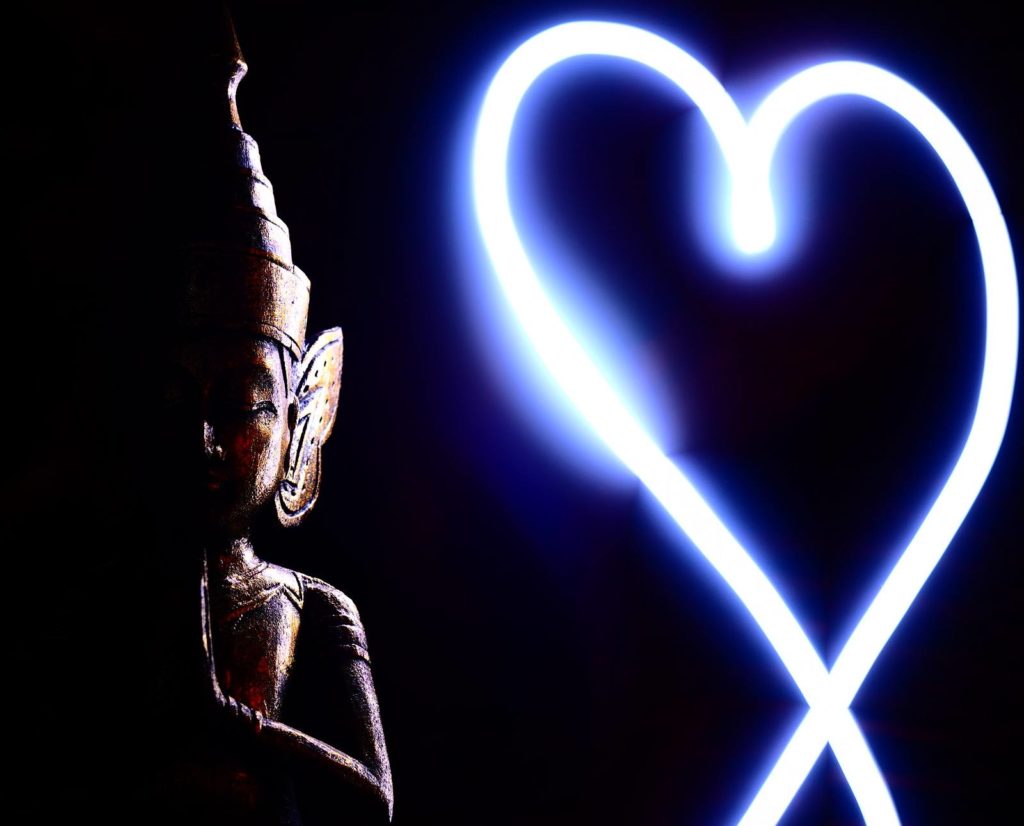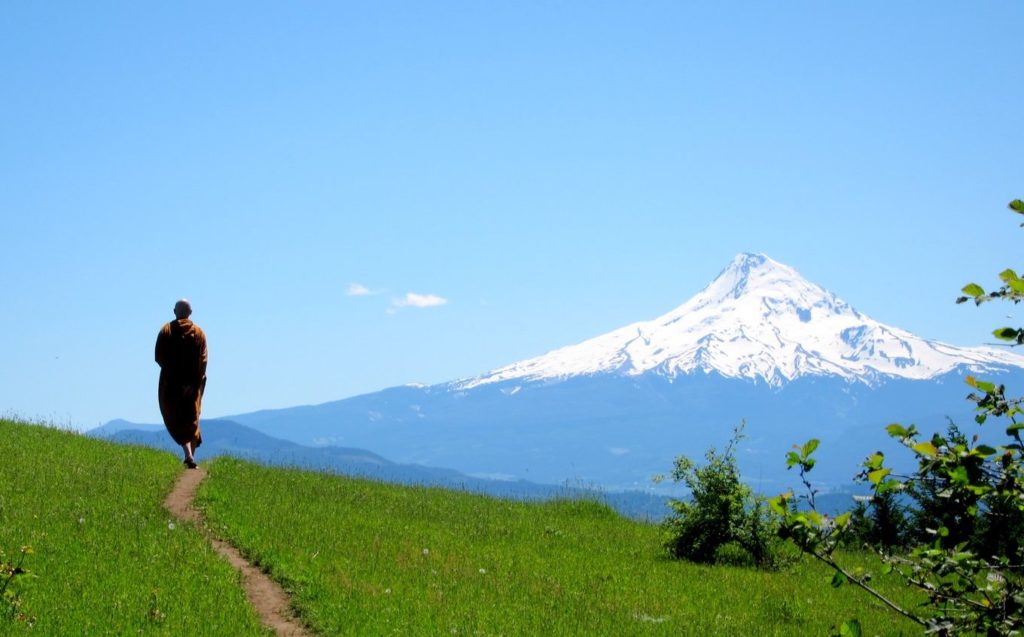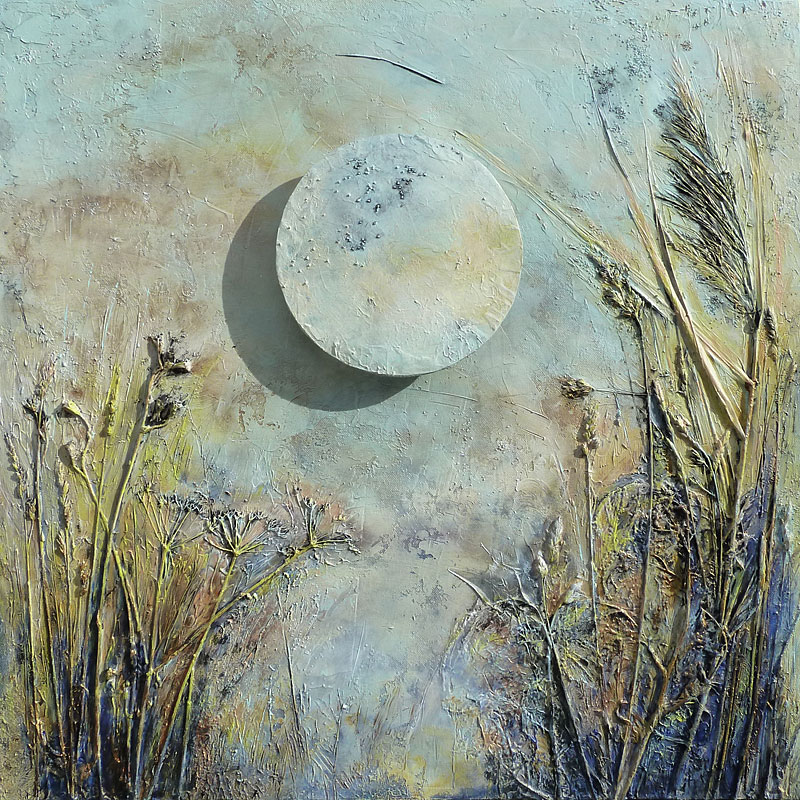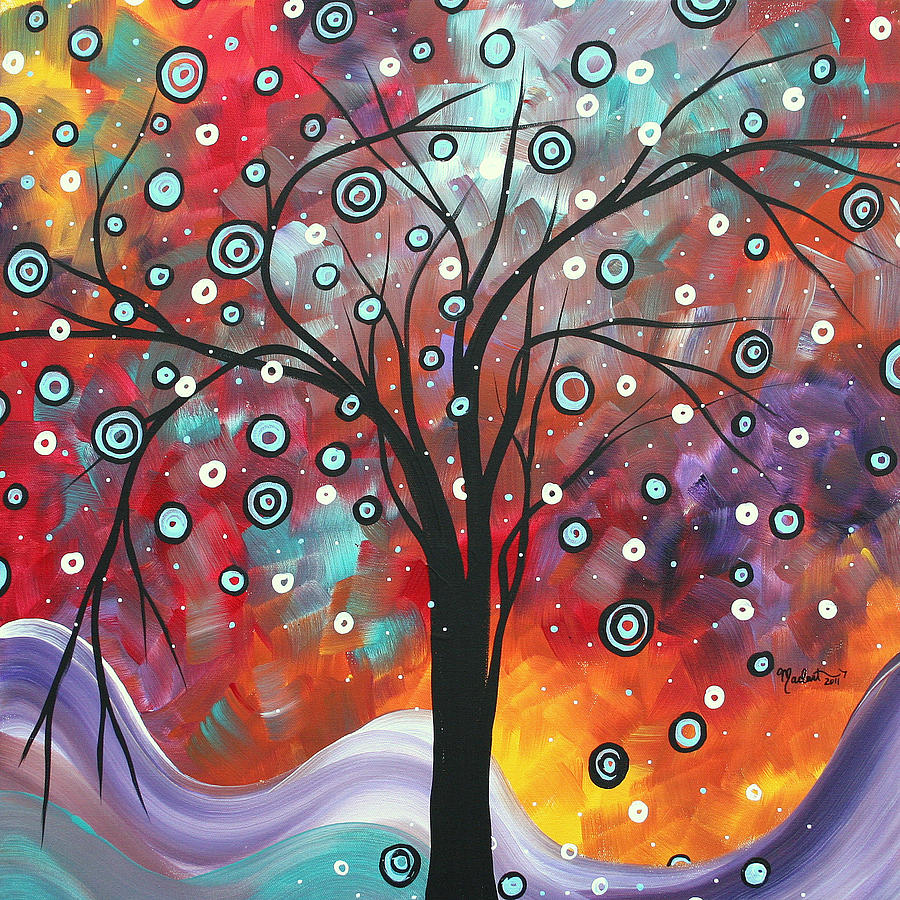When I Remember It…
Just a little more from Ajahn Sucitto’s Dec blog post:
“When heart-minds are in resonance, energy transfers and there is a corresponding glow — the ‘love’ effect… And when Dhamma is shared, the heart-mind can light up with a steady radiance — for good reason.
“…All the more reason then, to internalize the potency that has been thus aroused.
“Accordingly the Buddha questioned Visākhā, the devout matriarch of Savatthi, when she asked to make offerings to the Sangha: ‘What benefits do you see for yourself …?’
“Notice her impeccable reply: ‘When I remember it, I shall be glad. When I am glad, I shall be happy. When my mind is happy, my body will be tranquil. When my body is tranquil, I shall feel pleasure. When I feel pleasure, my mind will become concentrated. That will maintain the spiritual faculties in me and also the strengths and also the enlightenment factors.’ (Vinaya, Mahavagga, 8)
“Wisely managed, inspiration and gratitude result in liberation.”
***
(Thank you, Phillip.)
And Finally…
One of the topics at the recent course on Suffering and Oppression, taught by Lila Kate Wheeler and Lama Rod Owens, was the sexual and physical abuse perpetrated by leaders in some Buddhist communities. Our discussion focused mainly on the Rigpa lineage, since the leader of that organization — Sogyal Rinpoche — had been Lama Rod’s primary teacher. (Sogyal stepped down in 2017 when the abuse he’d perpetrated for decades finally came to light.)
Unfortunately this kind of behavior is not limited to any one tradition or organization, so I am very glad to see that Ajahn Sucitto has just written a blog post on this subject, titled The Power: to Bless or Abuse, which I highly recommend.
Of course Sucitto’s blog post doesn’t begin to cover this topic, but I like that he sums up his thoughts with this advice:
“The duty of the teacher, lay or in robes, is to recognize that their position and Dhamma will give them power – whether they wish for it or not.
“Thus my advice to disciples: check as to whether a teacher is in touch with a source outside his/her own mind; whether they operate within conventions that are widely held to be virtuous; and whether they are accountable to a group of peers or elders.
“And to teachers: ward off titles and empowerments; while occupying the teacher’s seat, pay homage to the source of those teachings; and finally when one has completed a teaching, get off that sacred seat and walk away.”
The Mind Points. The Heart Receives.
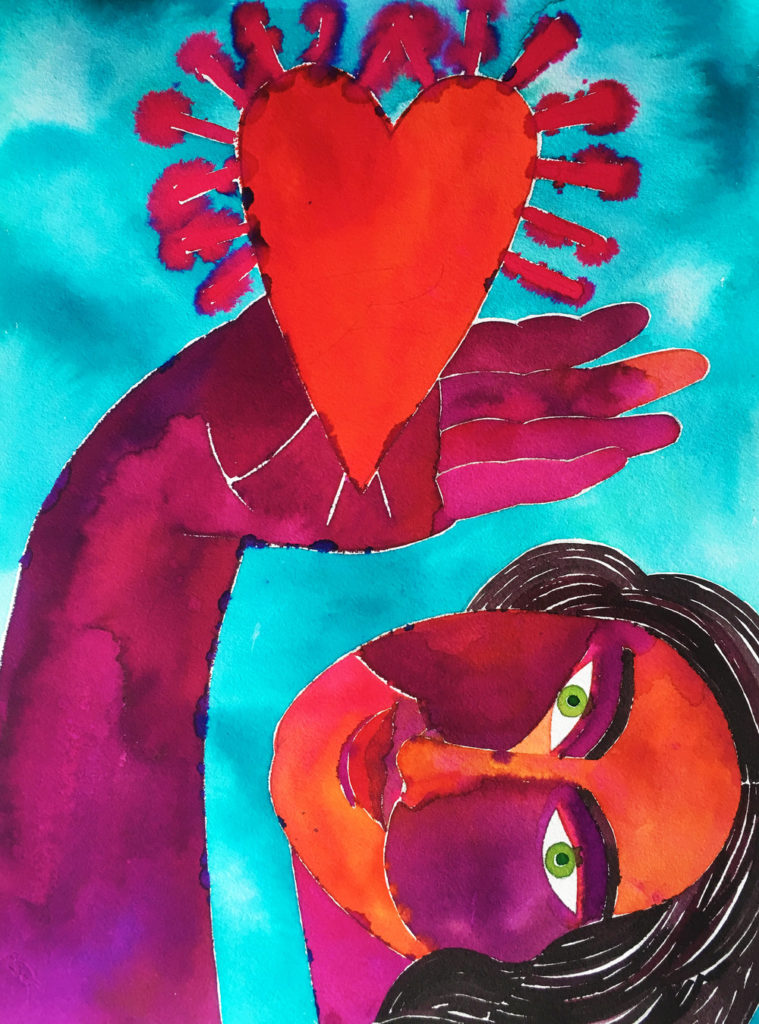 I continue to re-listen to the talk on Relational Dhamma, by Ajahn Sucitto, which I quoted extensively in my last post. I can’t help myself, so here’s another excerpt:
I continue to re-listen to the talk on Relational Dhamma, by Ajahn Sucitto, which I quoted extensively in my last post. I can’t help myself, so here’s another excerpt:
“Although we conceptually understand that our experience is relational, when it comes into practice many people have very dysfunctional, or afflictive, relational strategies: I control it, push it away, look somewhere else, or give up.
“What eventually occurs is the sense of an isolated self — an isolated entity — trying to deal with their mind. And then not being able to do it because the relationship is wrong.
“There’s not enough loving acceptance. There’s not enough spaciousness. Not enough openness.
“Quite a lot of meditation instructions — certainly when I first started — are very much about getting crystal clear definition of the object. To maintaining an unwavering, moment-by-moment crystal clear definition of the object. The subject: not there. Just object. Deal with the object. The subject: no self, not there, forget about it. Just deal with the object.
“But the kind of mindset that that sets up is of a continual lack of heart.
“One begins to use the mind — or “citta” — like a finger that points.
“This very much mirrors the visual way of relating to experience, which is: object definition. Which is great for clarity. For crystal clarity.
“But useless for relationship. Because it’s got no ability to receive anything. It just points. And directs.
“…So now, what I’m noticing is that many of the fundamental problems that people are experiencing — which are essentially a lack of loving acceptance, a lack of ease with other people, a tendency to continue to perform to try to get somewhere or to become something — are not addressed in the standard model of meditation instructions.
“In fact, the standard model often unconsciously encourages those problems — the isolation, the dependence on purely one’s own intellect and one’s ability to focus, and also the lack of receptability.
“We’re beginning to recognize that the word “citta” — which is that which can be purified and realizes liberation — is probably best translated as “heart.” Heart, Mind –these words are interchangeable, but…. Come to “heart” and you realize that “heart” doesn’t do that: [he points his finger]. It does that: [he opens the palm of his hand].
“And that’s a very different focus. It’s just as sensitive because the finger doesn’t receive. But the hand — the palm — does. And it can be just as accurate in its own way.
“So we’re staring to use focus much more in the receptive sense of: What is this doing to me; How is this effecting me; Who am I when I’m with these people; How am I when I’m with this one; How am I when there’s no one…
“And now there’s the beginning of the ability to understand the mutable nature of the ‘self’ that comes out of the relationship, rather than the ‘self’ being an entity than needs to attain concentration in order to be released…
***
The above is just a taste. Click here to listen to the talk in full.
Relational Energies in the Body
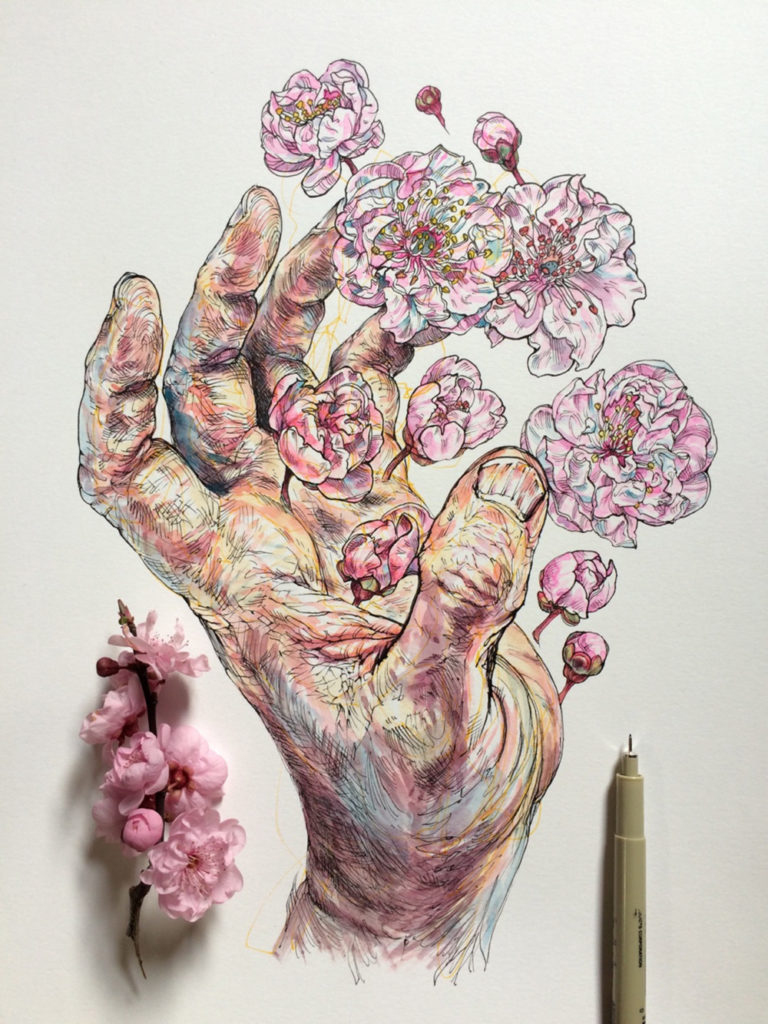 I keep listening over and over to a fascinating little talk (only 24 minutes long), called Relational Dhamma, given by Ajahn Sucitto, in which he says:
I keep listening over and over to a fascinating little talk (only 24 minutes long), called Relational Dhamma, given by Ajahn Sucitto, in which he says:
“Take something like Sangha — Community. Why is that a gem? Why is kalyana mitta [spiritual friendship] the ‘whole of the holy life’? Why is that considered so basic, so fundamental — to have people, and to be in a situation, where you have a relationship that is trusting, accepting, truthful. That’s not trying to make something out of you. Not judging you, but able to mirror…
“The fundamental model is sangha. But even more specifically: the teacher with the disciple. It’s a relationship that’s very close. The word for ‘disciple’ in the Pali text is ‘one who shares living space with you’. That’s close. ‘The one who shares the same dwelling as you’ — they get up before you; they prepare water for you; you talk to them; you do things together; you interact. That’s the fundamental place in which learning can occur.
“Because the learning of the heart is never through a book. What we learn most profoundly is from other people.
“And often what you learn from other people are very confused messages. Messages about what we should be. Message about the models of what we’re supposed to be, but not the message of: I am with you. Or: How are you?
“So I’m trying to emulate this in some sense. Certainly in monasteries there’s a lot of interaction. But I cannot say [laughs] that monasteries are by any means ideal relational experiences — but the nature of the disfunction does becomes more apparent… [more laughter] It becomes very obvious: the projections and the withdrawal from contact and the comparisons and all that kind of stuff that goes on.
“I am interested in a model whereby we begin to learn from each other, not from our personalities talking or adjusting each other, but from something far more basically human than our personalities, much less messed up and socialized than our personalities. (Personalities are really a series of structures that arise through contact in the social domain. That’s how we get a personality.)
“But prior to that, we have a simple thing: sentiency. I sense: a human being…feels pain…likes pleasure…there’s uncertainty…wants to be loved, is able to experience being loved…objecting to it. That would be helpful. What the personality is, that’s secondary.
“Interestingly enough, what I’ve been practicing with, is using this very body as a sense organ. Just using the somatic intelligence of the body. Which immediately tells me, when I’m drawn in with another human being, I feel a certain: Hey, what’s happening? I want to know. I want to know if that’s OK. And if it is OK, I feel a sense of happiness.
“And in that sense of forming a somatic bond with another person, one can begin to align one’s relational energies to something that’s far more fundamental — and far healthier — than the personality relationships.
“Some of us have been doing this together for about twelve years — this Somatic Presence Relationship Work. Often very confusing. Because it’s not always that clear…you can’t always get the words in your head as to what’s happening. But when I’ve tried to present this model, whatever is said (which is often minimal), what occurs at the end of it is that everybody feels: accepted, somehow belonging. The words they come up with are: belonging, accepted, trusted, relaxed, at ease.
“It’s because for one time they didn’t have to come up with something smart, polite, clear, interesting, wonderful, profound, etc. They’re just saying how it is. And the other person can add: how is that. Just encouraging them to track the relational energies as they occur in the body, prior to the personality…
“So when I say I’ve been interested in relational practices, this may sound kind of strange in a way. Because, you know, I am a kind of ‘recluse’. But I don’t see this as forming — whatever this word ‘relational’ can mean — sometimes people think almost immediately: ‘sex.’ That’s how bad it’s got. That whenever you’re having a relationship with someone, it’s sexual. That’s how bad it’s got in our society. The idea that any kind of quality of love can only occur if there’s physical contact and so forth. That it’s impossible outside of it. Unless it’s with a dog. (That’s why people get dogs, of course.)
“But I don’t do physical, sexual relationships. (Which is another topic all together.) I’m much more attuned to how I can learn and how I can sense — respectfully, as a sentient being — other people’s actual presence, as they are, rather than as projections in my mind. Rather than what I judge them to be. Or how I measure them. This is a great step.”
***
The transcript above begins at about 13 minutes into the talk and is edited. Click here to listen to the full talk.
Know That You Don’t Know
NEW MOON REFLECTION from the Forest Sangha (sent Dec 7, while I was away on retreat)
The Wise
Silence does not denote profundity
if you are ignorant and untrained.
Like one holding scales,
a sage weighs things up,
wholesome and unwholesome,
and comes to know both the inner and outer worlds.
Therefore the sage is called wise.
Dhammapada v. 268-269
“When we are faced with a quandary, when we simply don’t know what to do, it is important that we actually know that we don’t know what to do.
“This sounds so obvious that it hardly bears mentioning. But if we slow down, if we really look closely at the momentum of our mental activity, how able are we to abide in an open-hearted, clear-headed awareness of the state of ‘not-knowing’?
“Isn’t it the case that for the most part we are caught up in the desire to feel sure? We love feeling certain and tend to push past feelings of uncertainty. Those who have well-developed awareness are able to consider many different aspects of a situation. They don’t merely react to uncertainty out of conditioned preference.”
Hey, That’s Me!
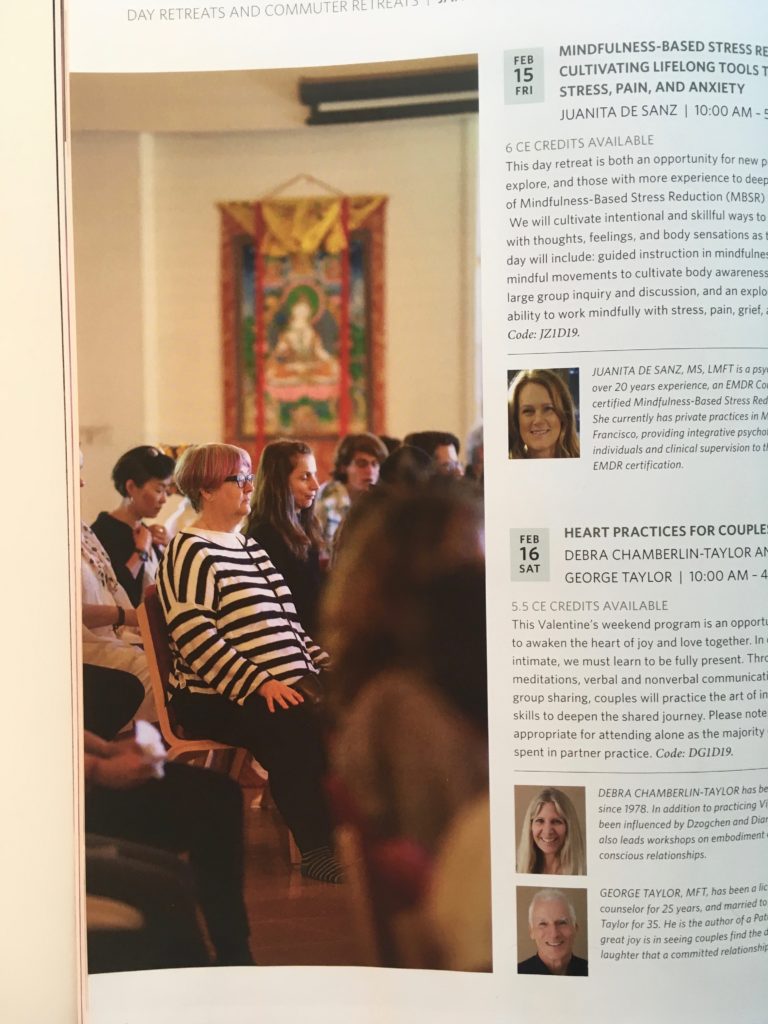 Check out page 20 in the latest issue of Spirit Rock News & Schedule.
Check out page 20 in the latest issue of Spirit Rock News & Schedule.
***
(Thanks, Rachel, for the head’s up!)
Let It Snow
Note: No post tomorrow because I’ll be busy getting ready to go to the Barre Center for Buddhist Studies (in western Massachusetts), where I’ll be taking a course on the Satipatthana in Dialogue with Suffering and Oppression, taught by my mentor Lila Kate Wheeler and Lama Rod Owens.
This does involve flying to Boston. In the winter.
I know.
But consider the bios of these two teachers!
Lila Kate Wheeler was authorized to teach at IMS-Spirit Rock ten years ago. She’s now honored to serve as a coordinator for the current training cohort at Spirit Rock, historic in its diverse composition. Lila’s practice includes being a nun in Burma and the US; learning and authorizations to share Dharma from Harilal Poonja and Dza Kilung Rinpoche. She’s married, a published writer, and has edited the first anthology of Buddhist fiction plus two books by the late Sayadaw U Pandita, her Burmese meditation master.
Lama Rod Owens is the Guiding Teacher for the Radical Dharma Boston Collective and teaches with Inward Bound Mindfulness Education (iBme) where he is also a faculty member for the organization’s teacher training program. He holds a Master of Divinity degree in Buddhist Studies from Harvard Divinity School with a focus on the intersection of social change, identity, and spiritual practice. He is a co-author of Radical Dharma, Talking Race, Love, and Liberation, which explores race in the context of American Buddhist communities. He also contributed a chapter on working with anger and difficult emotions in the book Real World Mindfulness for Beginners. He has offered talks, retreats, and workshops at Harvard, Yale, Tufts, NYU, and other universities. His current writing project is an exploration of intersectional masculinity and spirituality. He is a formally authorized teacher in the Kagyu school of Tibetan Buddhism.
***
Who cares about a little snow!
Precious Human Birth
 Let me introduce my brand new grand-niece, born Friday, Nov 30, at 7:19 pm. Her name is Harper Frances. (Frances is my mother’s name.)
Let me introduce my brand new grand-niece, born Friday, Nov 30, at 7:19 pm. Her name is Harper Frances. (Frances is my mother’s name.)
Welcome, little one!
May you be safe and feel protected.
May you be happy, just as you are.
May you be healthy and strong.
May you live in the world with ease.
Time for a Tiny Retreat
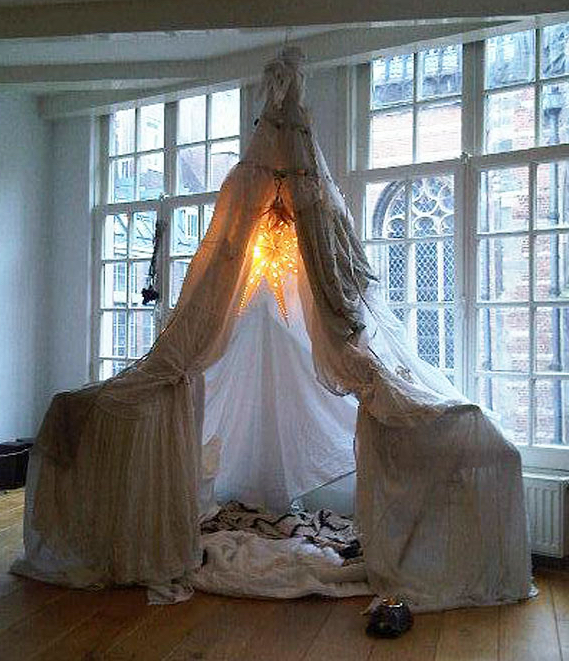 Tomorrow is the last Friday of the month, so instead of writing a post, I’ll be taking a Tiny Retreat.
Tomorrow is the last Friday of the month, so instead of writing a post, I’ll be taking a Tiny Retreat.
What’s a Tiny Retreat?
It’s a half-day I set aside each month to do sitting and walking meditation, just like I would on a regular retreat, except that I do it at home.
But I won’t be doing it alone, because there are others who will also be doing it — at their home — at the same time.
Want to join us?
We’ll be sitting-and-walking tomorrow morning from about 8:30 am to 12:30 pm CST. If you’d like to join in (by meditating however you like, wherever you are, at around the same time), just let me know. You can email me here. Then after we’re all done, I’ll check in with you to see how it went.
This is not such a tiny thing we’re doing here. The Buddha himself said that spiritual friendship is not simply a part of, but is in fact, the whole of the spiritual life.
Reading “Washington Black”
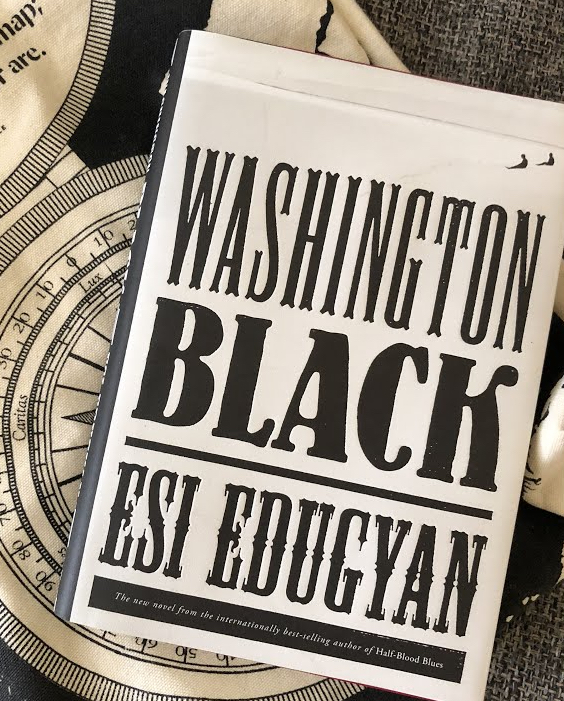 I’m delighted that my “Waking Up to Whiteness” book discussion group has chosen Washington Black, by Esi Edugyan.
I’m delighted that my “Waking Up to Whiteness” book discussion group has chosen Washington Black, by Esi Edugyan.
Here’s an excerpt:
“I might have been ten, eleven years old–I cannot say for certain–when my first master died.
“No one grieved him; in the fields we hung our heads, keening, grieving for ourselves and the estate sale that must follow. He died very old. I saw him only at a distance: stooped, thin, asleep in a shaded chair on the lawn, a blanket at his lap. I think now he was like a specimen preserved in a bottle. He had outlived a mad king, outlived the slave trade itself, had seen the fall of the French Empire and the rise of the British and the dawn of the industrial age, and his usefulness, surely, had passed.
“On that last evening I remember crouching on my bare heels in the stony dirt of Faith Plantation and pressing a palm flat against Big Kit’s calf, feeling the heat of her skin baking up out of it, the strength and power of her, while the red sunlight settled in the cane all around us. Together, silent, we watched as the overseers shouldered the coffin down from the Great House. They slid it rasping into the straw of the wagon and, dropping the rail into place with a bang, rode rattling away.
“That was how it began: me and Big Kit, watching the dead go free.”
***
This is going to be good!

